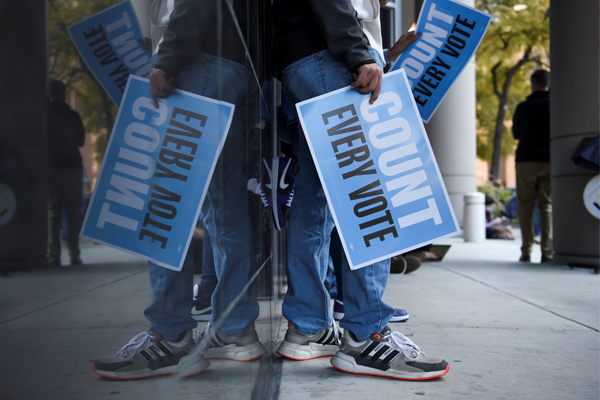Nov 3, 2020
The Electoral College has racist origins. Southern states were granted votes for three-fifths of their slave populations, even though those enslaved people were themselves unable to vote. This effectively gave white southerners an outsized influence on the electoral process until the end of the Jim Crow era. Today, the system favors voters in a small group of battleground states at the expense of most Americans and over-represents white voters while ignoring many voters of color. A growing chorus of legal and policy experts, along with the majority of Americans, believe it should change. However, the Electoral College’s racist legacy has also impacted efforts to change it.
Read the Full Article

Already a subscriber? Login
